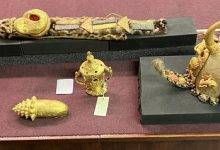
The Chancellor of the University of Ghana, Mrs Mary Chinery-Hesse, has urged African governments to build the capacity of their key actors and institutions involved in the African integration process to accelerate the ambition.
She said the integration process had been delayed because the continent had not paid sufficient attention to the importance of building the institutional and human capital fit for purpose.
“There is a crucial need to enhance national and regional and continental capacity to generate the skills set for the serious business of accelerating the African Union project in all its manifestations,” she said.
Mrs Chinery-Hesse, who is the Chairperson of the Board of Trustees of the Centre for Regional Integration in Africa (CRIA), was speaking at the opening of a two-day sensitisation forum on African Integration in Accra, on Tuesday.
Under the Regional Integration Issues Forum (RIIF), the event is on the theme “Enhancing National Capacity for regional and continental integration in Africa.”
It is being organised by the Ministry of Foreign Affairs and Regional Integration in collaboration with African Capacity Building Foundation (ACBF) and the CRIA.
With 100 participants drawn from state institutions, civil society and academia, in attendance, the platform sought to highlight capacity building and other issues in African integration drive.
For Mrs Chinery-Hesse, it was important that Foreign Service Officers of countries who undertook many activities on behalf of their respective countries were equipped adequately to deepen the African Integration.
In view of this, she called for support for the CRIA to enable it to help various actors to broaden their horizon and develop analytical and other skills needed to maximise the African integration.
Deputy Minister of Foreign and Regional Integration, Mohammed Habibu Tijani, called on African countries to show political will toward the African integration by transcending artificial borders and pooling resources together for collective development.
“The lack of political will to make the required sacrifices in order to achieve sustainable development is not only disappointing but has proved to be devastating,” he said.
In order for the continent to add value to its primary produce, he said, it was time for the continent to strengthen multilateral collaboration and foster innovation and technological advancement to facilitate labour mobility and access to factors of production.
The Executive Director of ACBF, Prof Emmanuel Nnadozie, said the African integration ambition required that the various legal instruments were ratified and implemented.
He also advocated the involvement of local authorities in the integration agenda.
BY JONATHAN DONKOR







